![FreeStyle [DVD]](/pictures/1098536.jpg) FreeStyle | DVD | (01/03/2010)
from £6.39
| Saving you £6.60 (103.29%)
| RRP
FreeStyle | DVD | (01/03/2010)
from £6.39
| Saving you £6.60 (103.29%)
| RRP Two friends will help eachother overcome prejudice from their peers by letting it all out on the basketball courts with their passion and talent to FREESTYLE.
![Ich bin dein Mensch [Blu-ray]](/pictures/1156775.jpg) Ich bin dein Mensch | Blu Ray | (23/09/2021)
from £11.08
| Saving you £N/A (N/A%)
| RRP
Ich bin dein Mensch | Blu Ray | (23/09/2021)
from £11.08
| Saving you £N/A (N/A%)
| RRP ![RAUMPATROUILLE ORION (DVD) - S [1966]](/pictures/1152514.jpg) RAUMPATROUILLE ORION (DVD) - S | DVD | (16/02/2006)
from £N/A
| Saving you £N/A (N/A%)
| RRP
RAUMPATROUILLE ORION (DVD) - S | DVD | (16/02/2006)
from £N/A
| Saving you £N/A (N/A%)
| RRP ![The Hitchcock Collection, Volume 2 [1958]](/pictures/1011532.jpg) The Hitchcock Collection, Volume 2 | DVD | (06/03/2006)
from £N/A
| Saving you £N/A (N/A%)
| RRP
The Hitchcock Collection, Volume 2 | DVD | (06/03/2006)
from £N/A
| Saving you £N/A (N/A%)
| RRP A welcome second volume of classics from the Master of Suspense, this seven-disc Hitchcock Collection box-set consists of the following: The Birds: Based on a Daphne Du Maurier short story, The Birds (1963) is Hitchcock at his most terrifying, as the residents of a small town are attacked by thousands of apparently homicidal birds. Marnie: Tippi Hedren and newly Bonded Sean Connery star in this excellent 1964 thriller, which finds a calculating thief who robs her employers pursued by a her new boss, who is desperate to unlock her secrets Torn Curtain: This 1966 spy thriller, pairing Paul Newman and Julie Andrews, finds Newman as a world-famous physicist intent on defecting to East Berlin in order to obtain funding for his latest project. Topaz: Based on the Leon Uris novel, Hitch's 51st film, made in 1969, concerns a CIA agent who learns of Russian missiles in Cuba. With the aid of a French agent, they negotiate a plethora of corruption and murder. Frenzy: This critically acclaimed 1972 film was Hitch's first British-made film for more than 20 years. A classic Hitch story of an innocent man accused of being the "necktie murderer"--a vicious sex criminal terrorising London--he eludes the authorities and seeks the real killer. Family Plot: Hitchcock's final film, made in 1976, is a blackly funny mix of murder, theft and kidnapping as a cab-driver and a psychic team up to find a dead man--not actually dead--in exchange for a $10,000 reward. Bonus Disc--Vertigo: An irreducible masterpiece, this 1958 double-identity thriller finds Hitch serving aces, as Jimmy Stewart's detective is drawn in to a complex plot when the girl he loves apparently falls to her death. On the DVD: Like the first volume, this is an equally impressive package that will satisfy the rotund fright-master's fans. Along with the standard selection of trailers, production notes and picture galleries, each disc houses an impressive "making of" documentary, each expertly detailing Hitch's meticulous work. The Birds features Tippi Hedren's screen test and--in storyboard form--deleted scenes and the alternative ending. Topaz has no less that three alternative endings, while Torn Curtain includes scenes scored by composer Bernard Herrmann before his music was rejected by Hitch. The Vertigo disc features an excellent group commentary from producer Herbert Coleman and restoration experts Robert A Harris and James Katz, as well as a documentary, "Obsessed with Vertigo". Housed in attractive fold-out packaging, this is an excellent opportunity to obtain a rich slice of Hitchcock's dark magic.--Danny Graydon
![Saint-Saens: Samson et Dalila -- San Francisco Opera [1981]](/pictures/1028660.jpg) Saint-Saens: Samson et Dalila -- San Francisco Opera | DVD | (11/06/2001)
from £N/A
| Saving you £N/A (N/A%)
| RRP
Saint-Saens: Samson et Dalila -- San Francisco Opera | DVD | (11/06/2001)
from £N/A
| Saving you £N/A (N/A%)
| RRP Saint-Saens' Samson et Dalila is here realised in a lavish 1981 San Francisco Opera production with Placido Domingo in his prime. Significantly expanded from the famous Bible story of the Jews under the Philistine yoke, and recast in late-19th century romantic terms, the opera was close to the composer's heart: Saint-Saens began work in 1859 but did not complete his score until 17 years later. While elements of the originally planned more formal oratorio remain, Samson et Dalila nevertheless develops considerable dramatic and orchestral power, with Domingo giving a performance worthy of a great tragic hero. Likewise, mezzo-soprano Shirley Verrett brings complex characterisation to the temptress Dalila, offering a performance of such seductive intelligence that her scenes with Domingo spark with electrifying force. Equally fine support comes from Wolfgang Brendel as Samson's nemesis, the High Priest of the pagan god Dagon. Director Nicolas Joel knows when to emphasise the spectacle of the stage production or focus on more intimate personal drama, though it is the latter which is best served in a small screen version somewhat diminished by early 1980s TV technical standards. That aside, this is music drama with the grip of a psychological thriller and is unlikely to disappoint those looking for a feast of fine singing. On the DVD: Samson et Dalila on disc has good if occasionally a little harsh PCM stereo. The 4:3 picture is somewhat soft and prone to blurring, evidencing all the problems of live concert material shot on video. There are optional multi-language subtitles, trailers for two further ArtHaus releases and a booklet with chapter details, cast list, notes on the composer, opera, production and performers, and a detailed synopsis.--Gary S Dalkin
![Strauss: Die Frau Ohne Schatten (Opus Arte: OABD7104D) [Blu-ray] [2010] [Region Free]](/pictures/1152928.jpg) Strauss: Die Frau Ohne Schatten (Opus Arte: OABD7104D) | Blu Ray | (26/03/2012)
from £25.65
| Saving you £N/A (N/A%)
| RRP
Strauss: Die Frau Ohne Schatten (Opus Arte: OABD7104D) | Blu Ray | (26/03/2012)
from £25.65
| Saving you £N/A (N/A%)
| RRP ![Fontane - Effi Briest [R.W. Fassbinder] [DVD]](/pictures/1111817.jpg) Fontane - Effi Briest | DVD | (17/10/2011)
from £14.98
| Saving you £-1.99 (N/A%)
| RRP
Fontane - Effi Briest | DVD | (17/10/2011)
from £14.98
| Saving you £-1.99 (N/A%)
| RRP In the nineteenth century, seventeen year old Effi Briest is married to the older Baron von Instetten and moves into a house, that she believes has a ghost, in a small isolated Baltic town. She soon bears a daughter, Annie, and hires the lapsed Catholic Roswitha to look after her. Effi is lonely when her husband is away on business, so she spends time riding and walking along the shore with Major Crampas. Instetten is promoted to Ministerial Councillor and the family moves to Berlin, where Effi enjoys the social life. Six years later, the Baron is given letters from Crampas to Effi that convince him that they had an affair. He feels obliged to challenge Crampas to a duel and banish Effi from the house.Nominated for the Golden Bear at the Berlin Film Festival in 1974.
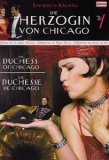 Emmerich Kalman - Duchess of Chicago | DVD | (12/09/2005)
from £N/A
| Saving you £N/A (N/A%)
| RRP
Emmerich Kalman - Duchess of Chicago | DVD | (12/09/2005)
from £N/A
| Saving you £N/A (N/A%)
| RRP The Duchess Of ChicagoOperetta In Two Acts
![The Counterfeit Traitor [Blu-ray]](/pictures/1161039.jpg) The Counterfeit Traitor | Blu Ray | (25/10/2022)
from £N/A
| Saving you £N/A (N/A%)
| RRP
The Counterfeit Traitor | Blu Ray | (25/10/2022)
from £N/A
| Saving you £N/A (N/A%)
| RRP  Verdi: Falstaff -- Aix-en-Provence/Mazzola | DVD | (20/09/2002)
from £N/A
| Saving you £N/A (N/A%)
| RRP
Verdi: Falstaff -- Aix-en-Provence/Mazzola | DVD | (20/09/2002)
from £N/A
| Saving you £N/A (N/A%)
| RRP With Willard White in the title role, this very well-sung production of Falstaff from the Aix-en-Provence festival, set in the 1950s, makes for a radical yet plausibly alternative view to the traditional setting in "Merrie England". By casting Jamaican-born baritone White in the title role, director Herbert Wernicke has emphasised Falstaff's role as an outsider, spurned by the community on account of his success as a local businessman and here with the added burden of being black. White engages our sympathy for Falstaff's plight, notably in the last act where he finally turns the table on his adversary, Ford. Yet in his world-weary sophisticated persona this Falstaff seems at odds with the farce unfolding about him; he's been there, done that. There are, nevertheless, key moments to relish: his flicker of the eye as he dismisses Pistol and Bardolph with his letters to the Misses Ford and Page; the duet he shares with Ford on the trials and tribulations of love; and the return of his self-esteem as he pulls himself up to full height following his ducking in the Thames. His face in the final act, shot in close-up, white beard illuminated by moonlight, framed by Herne's horns, is unforgettable. The supporting cast are uniformly excellent as singers and actors, a joy to watch and hear. The main set consists of a polished wooden floor with walls of wooden slatted flaps that open and shut as characters drop in and out of the action. White linen on washing lines, sheets tumbling out of drawers, or, somewhat incongruously, neatly folded on the bed that Falstaff rolls out of after his dip in the Thames, make welcome visual diversions. The Orchestre de Paris play brilliantly under maestro Enrique Mazzola who captures the ebb and flow of Verdi's fast moving score to perfection. On the DVD: Falstaff on disc has subtitles in Italian, English, German, French and Spanish. The picture quality has a real three-dimensional feel to it and the soundtrack likewise. --Adrian Edwards
![Strauss: Die Fledermaus -- Bavarian State Opera [1985]](/pictures/1028697.jpg) Strauss: Die Fledermaus -- Bavarian State Opera | DVD | (19/03/2001)
from £N/A
| Saving you £N/A (N/A%)
| RRP
Strauss: Die Fledermaus -- Bavarian State Opera | DVD | (19/03/2001)
from £N/A
| Saving you £N/A (N/A%)
| RRP ![Rossini: La Cenerentola (Cinderella) -- Vienna/Chailly [1988]](/pictures/1075303.jpg) Rossini: La Cenerentola (Cinderella) -- Vienna/Chailly | DVD | (03/09/2001)
from £51.97
| Saving you £-25.72 (N/A%)
| RRP
Rossini: La Cenerentola (Cinderella) -- Vienna/Chailly | DVD | (03/09/2001)
from £51.97
| Saving you £-25.72 (N/A%)
| RRP La Cenerentola is one of the few operas to have an important subtitle, "The Triumph of Virtue". This Salzburg production makes a point of its being a moral tale rather than a mere fairy tale like the version reflexively sung by Angelina in her "Cavatina": the defeat and forgiveness of the stepsisters and their greedy father is a settling of moral accounts. The production is also tremendous fun--partly because of gimmicks like the mechanical coach and horses that arrives on stage in the high wind of the Act Two storm--but mostly because of the endlessly energetic pulse of Riccardo Chailly's conducting of the Vienna Philharmonic. Anne Murray is an ideal Angelina, equally good at the heroine's witty intelligence and at the complexity of her emotional situation--loyal to the family that mistreats her. Francisco Araiza is an attractive Don Ramirez; the byplay between him and his servant Dandini (Gino Quilico)--in the duet "Zitto, zitto. Piano, piano", for example is for once genuinely amusing. Parts like Don Magnifico were the late Walter Berry's stock-in-trade--his occasionally menacing portrayal is far richer and more interesting than a mere buffoon. On the DVD: As usual with Arthaus Musik, an excellent production and performance is left to sink or swim without any detailed production notes either on the disc or in the leaflet. The sound is standard PCM stereo and the picture ratio 4:3. There are instructions in French, German, English and Spanish and subtitles in all of those languages plus Italian. --Roz Kaveney
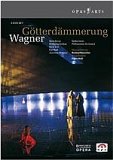 Gotterdammerung - Wagner | DVD | (29/05/2006)
from £37.69
| Saving you £-2.70 (N/A%)
| RRP
Gotterdammerung - Wagner | DVD | (29/05/2006)
from £37.69
| Saving you £-2.70 (N/A%)
| RRP Wagner: Gotterdammerung (Haenchen Netherlands Philharmonic Orchestra Kruse)
![Strauss - Aschenbrodel [1999]](/pictures/1068594.jpg) Strauss - Aschenbrodel | DVD | (05/03/2007)
from £26.98
| Saving you £-1.99 (-8.00%)
| RRP
Strauss - Aschenbrodel | DVD | (05/03/2007)
from £26.98
| Saving you £-1.99 (-8.00%)
| RRP Strauss Ii:Aschenbr'del
![Tristan Und Isolde - Wagner [2002]](/pictures/1035330.jpg) Tristan Und Isolde - Wagner | DVD | (03/10/2005)
from £29.88
| Saving you £5.11 (14.60%)
| RRP
Tristan Und Isolde - Wagner | DVD | (03/10/2005)
from £29.88
| Saving you £5.11 (14.60%)
| RRP John Treleaven and Deborah Polaski lead an outstanding cast in Wagner's operative tour de force based on the medieval voyager legend of Sir Tristan and Isolde Princess of Ireland who unknowingly offers the knight a love potion in place of the poison she had intended should kill them both. Bertrand de Billy conducts the Symphony Orchestra and Chorus of the Gran Teatre del Liceu in an acclaimed production.
![Strauss: Arabella (2012 Vienna State) (Emily Magee/ Genia Kuhmeier/ Tomasz Konieczny/ Orchestra of the Vienna State Opera/ Franz Welser-Möst/ Sven-Eric Bechtolf) (Electric Picture: EPC04BD) [Blu-ray]](/pictures/1118770.jpg) Strauss: Arabella (2012 Vienna State) (Emily Magee/ Genia Kuhmeier/ Tomasz Konieczny/ Orchestra of the Vienna State Opera/ Franz Welser-Möst/ Sven-Eric Bechtolf) (Electric Picture: EPC04BD) | Blu Ray | (15/10/2012)
from £32.30
| Saving you £-2.31 (N/A%)
| RRP
Strauss: Arabella (2012 Vienna State) (Emily Magee/ Genia Kuhmeier/ Tomasz Konieczny/ Orchestra of the Vienna State Opera/ Franz Welser-Möst/ Sven-Eric Bechtolf) (Electric Picture: EPC04BD) | Blu Ray | (15/10/2012)
from £32.30
| Saving you £-2.31 (N/A%)
| RRP 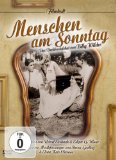 Menschen Am Sonntag | DVD | (15/05/2006)
from £N/A
| Saving you £N/A (N/A%)
| RRP
Menschen Am Sonntag | DVD | (15/05/2006)
from £N/A
| Saving you £N/A (N/A%)
| RRP ![Richard Wagner - Parsifal [DVD] [2013]](/pictures/1130883.jpg) Richard Wagner - Parsifal | DVD | (29/07/2013)
from £13.15
| Saving you £6.84 (52.02%)
| RRP
Richard Wagner - Parsifal | DVD | (29/07/2013)
from £13.15
| Saving you £6.84 (52.02%)
| RRP NOTICE: Polish Release, cover may contain Polish text/markings. The disk DOES NOT have English audio and subtitles.
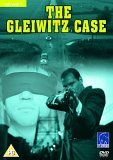 The Gleiwitz Case | DVD | (12/02/2007)
from £14.56
| Saving you £0.43 (2.90%)
| RRP
The Gleiwitz Case | DVD | (12/02/2007)
from £14.56
| Saving you £0.43 (2.90%)
| RRP Considered one of the most modern and experimental films in DEFA's history the eccentric Gleiwitz Case also scripted by Wolfgang Kohlhaase is a detailed reconstruction of the 1939 surprise attack by a Nazi unit on the radio station at Gleiwitz a German town on the Polish border. The attack blamed on Polish forces served as Hitler's justification for marching into Poland-thus starting World War II.
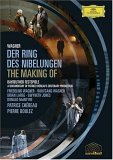 Wagner - the Making of Der Ring Des Nibelungen | DVD | (11/07/2005)
from £N/A
| Saving you £N/A (N/A%)
| RRP
Wagner - the Making of Der Ring Des Nibelungen | DVD | (11/07/2005)
from £N/A
| Saving you £N/A (N/A%)
| RRP The partnership of Boulez Chereau and Peduzzi put Wagner's Ring back where it belonged - at the centre of controversy. By the time it was last seen on the stage of the Festspielhaus in 1980 the production had taken its place as one of the historic achievements of the Bayreuth Festival. Working closely with video director Brian Large Chereau re-rehearsed his staging for the films taped at that time to recreate the experience on screen and to preserve career-defining performances from the original cast headed by Donald McIntyre Gwyneth Jones and Manfred Jung.

Please wait. Loading...
This site uses cookies.
More details in our privacy policy